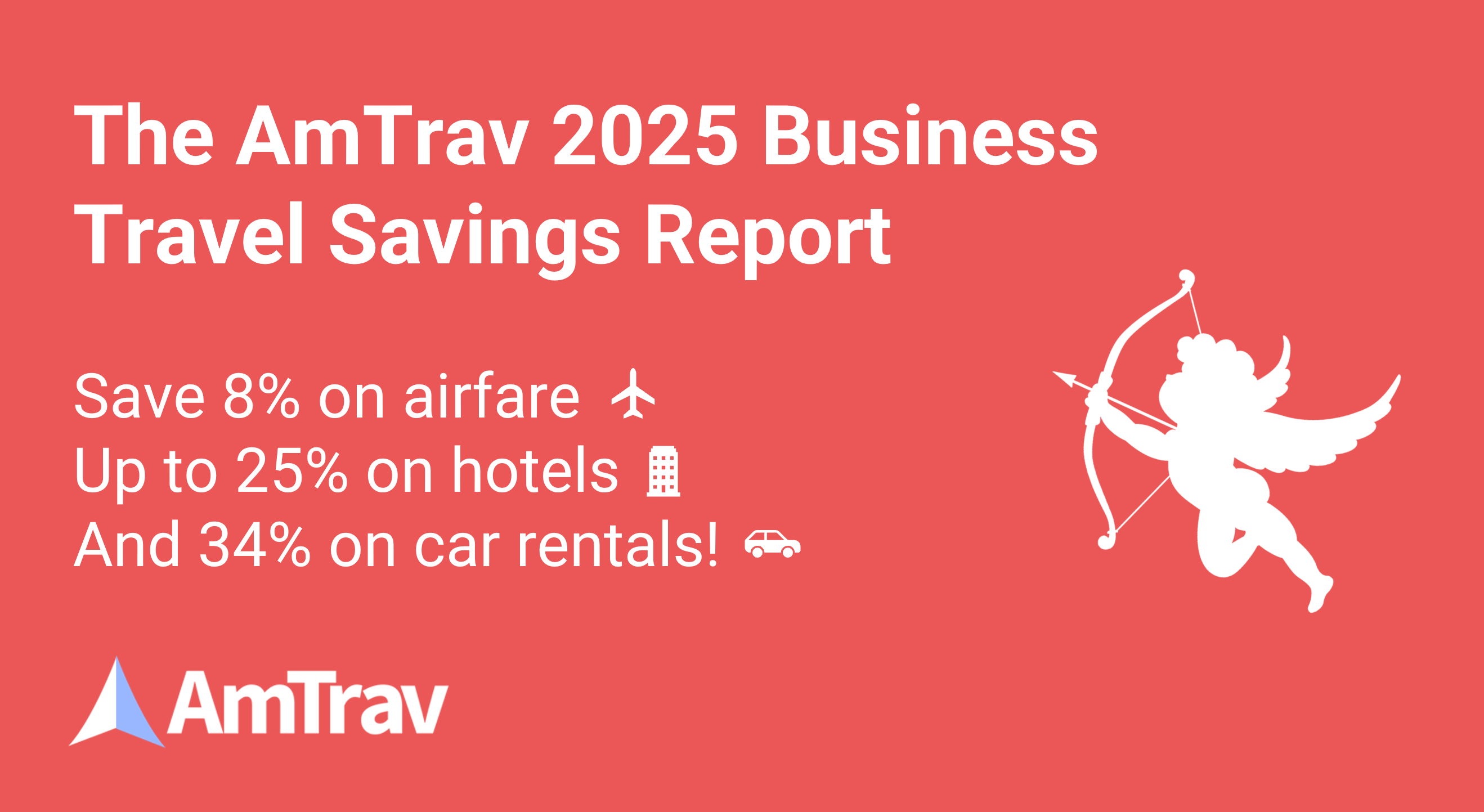AmTrav 2025 Business Travel Savings Report
This Valentine's Day AmTrav is bringing you savings that you'll ❤️!
2 min read
 Johnathan Vance
:
April 13, 2023
Johnathan Vance
:
April 13, 2023

You might've heard of the term "bleisure" lately, which is a clever combination of "business" and "leisure." This rising trend involves business travelers adding a little vacation time to their work trips.
By extending hotel stays or delaying return flights, employees can take some well-deserved downtime before or after wrapping up their work duties. This trend is catching on as more folks are looking for long-term employers with a flexible approach to bleisure travel. For corporate travel managers, understanding and accommodating bleisure requests has become increasingly important.
It seems that more and more employees are seizing the opportunity to mix business with pleasure by blending leisure stays into their work trips. In 2017, employees took more than 2.2 million bleisure trips, a whopping 20% increase from the previous year. Many business trips began to include Saturday night stays.
Some corporate travel managers attribute this trend to millennials, but it’s popular across all age groups. Most bleisure travel extensions last for only a day or two, which means you probably won't need to worry about employees abusing the privilege.
Incorporating bleisure travel into your corporate travel policy can provide numerous benefits for businesses of any size. Frequent or repeated business travel can take a toll on your employees, especially when it keeps them away from home for long periods of time.
Adding bleisure stays to work trips can help combat the negative effects of frequent business travel. By providing stress relief and allowing employees to re-energize after long or demanding work trips, bleisure travel can ensure they return to the office with full focus.
Incorporating bleisure travel into your corporate travel policy can be a bit tricky, especially when it comes to separating costs. However, by taking advantage of automation and expense-tracking software/apps, you can easily differentiate between business and personal expenses.
It's essential to outline policy specifics to eliminate confusion for employees. Items to define include when the business portion of the trip ends, how long bleisure travel can be extended, any business travel exempt from bleisure travel, guest/family allowances or limitations, and limitations of company insurance policy coverage.
Consider adding bleisure travel to your corporate travel policy as part of your duty of care. Creating a healthy work/life balance and helping manage employee stress can keep them alert and energized as they travel.
In conclusion, bleisure travel is an increasingly popular trend that has the potential to benefit both employees and employers. By understanding the concept of bleisure and adjusting your corporate travel policy accordingly, you can promote a healthy work-life balance, improve employee satisfaction, and maintain a productive and energized workforce.
Looking for more tips to help you deliver a great business travel program? Schedule some time with us today and we'll give you personalized recommendations.

This Valentine's Day AmTrav is bringing you savings that you'll ❤️!

At AmTrav, customer feedback isn’t just valuable—it drives everything we do. We listen, learn, and build the tools you need into our one connected...

As a Travel Manager, you’re always looking ahead, balancing cost control with ensuring your travelers have a smooth experience. If you’ve been hoping...